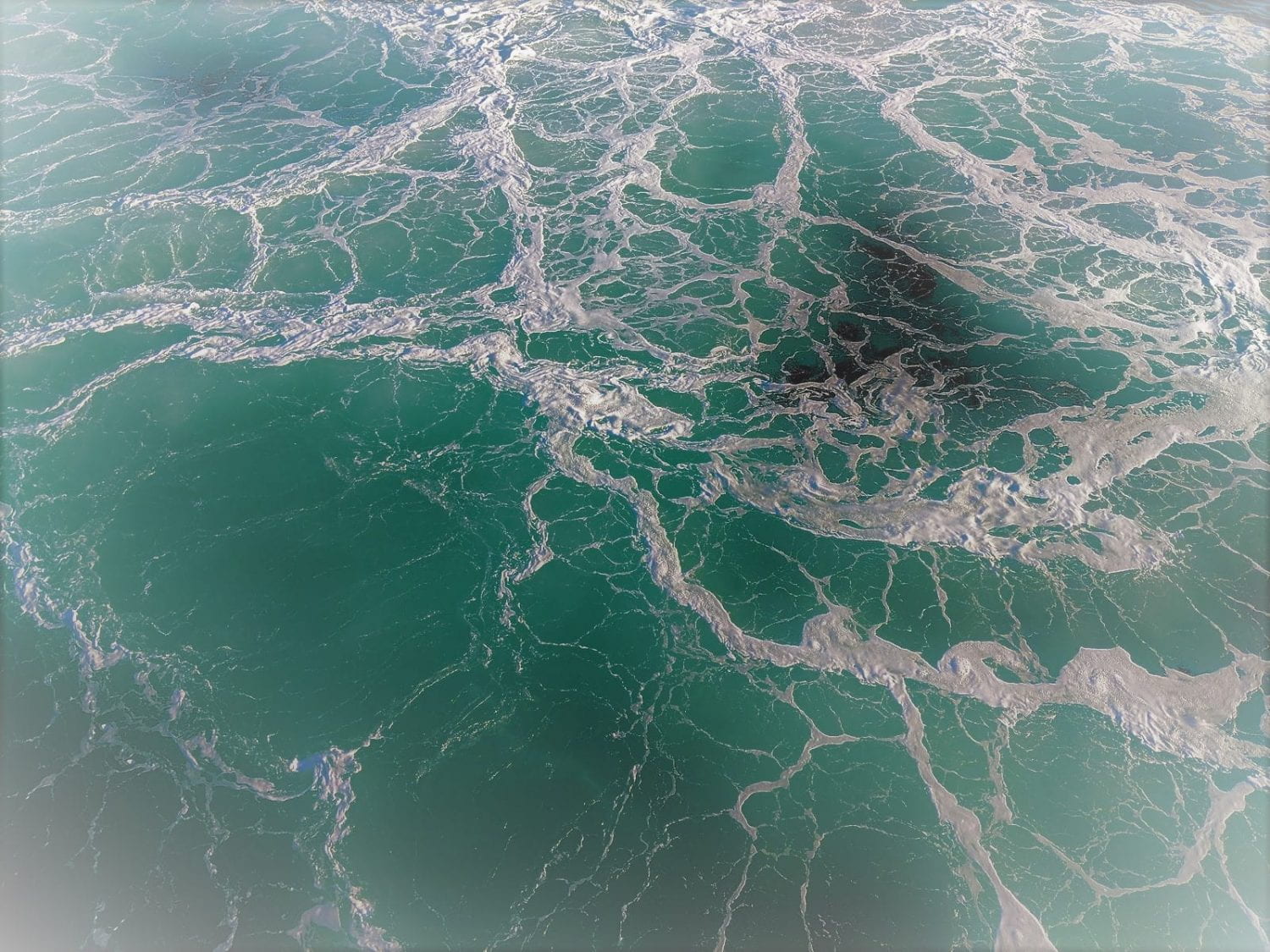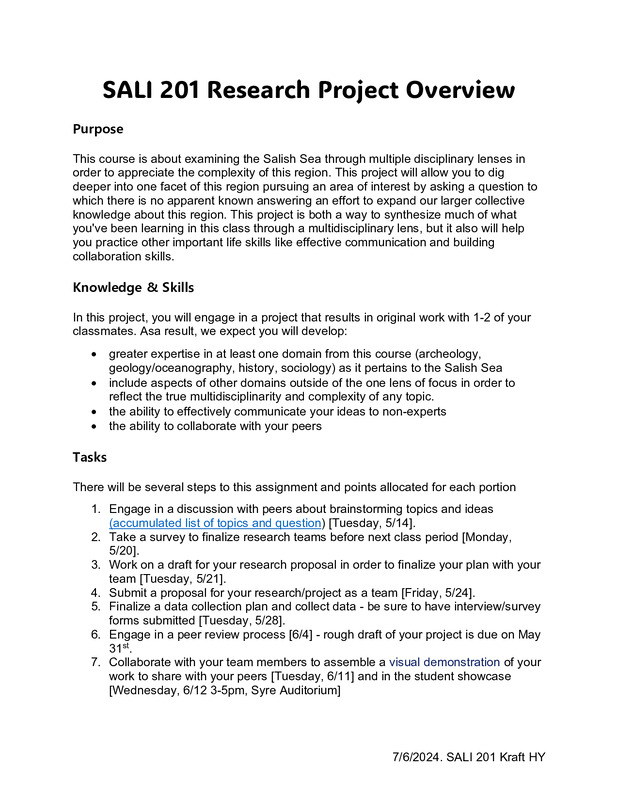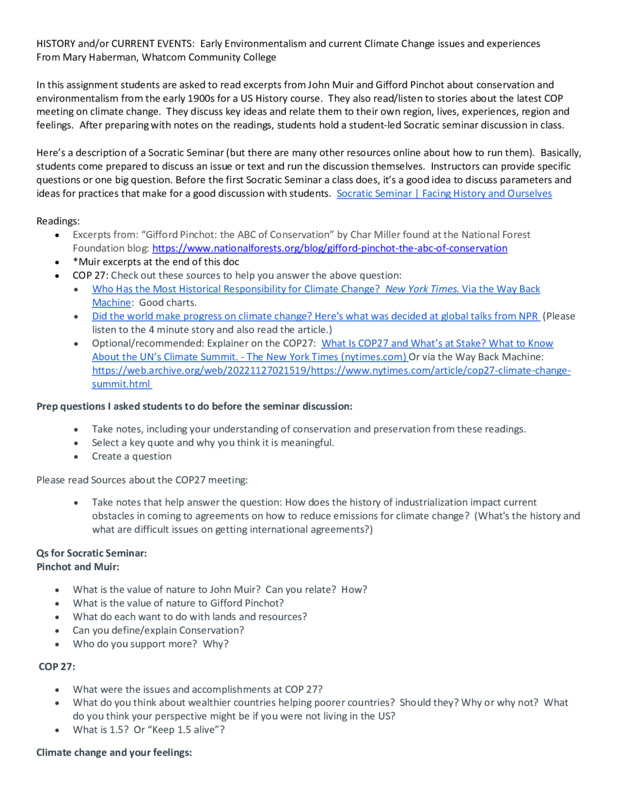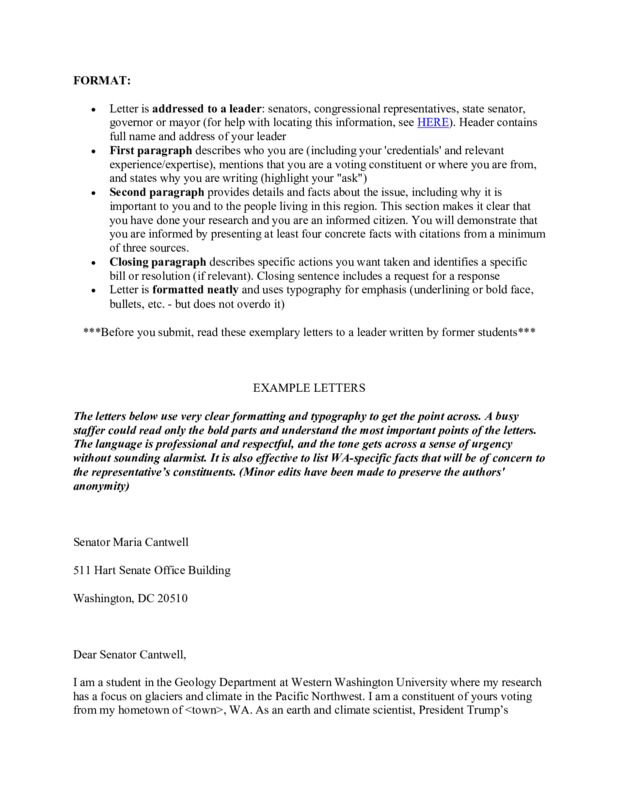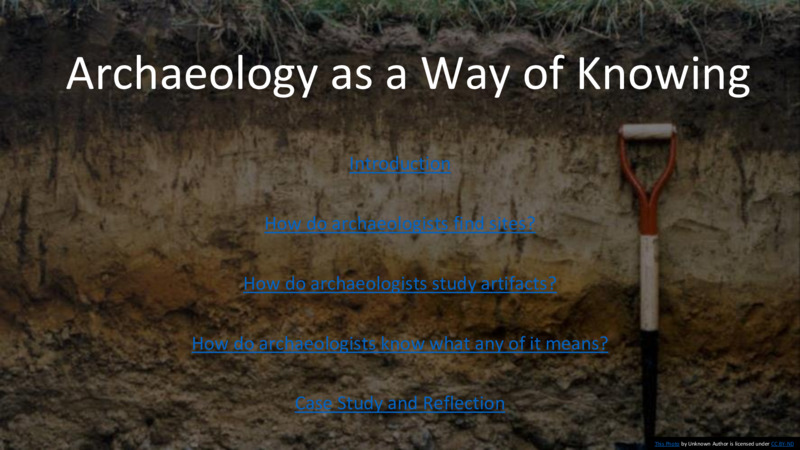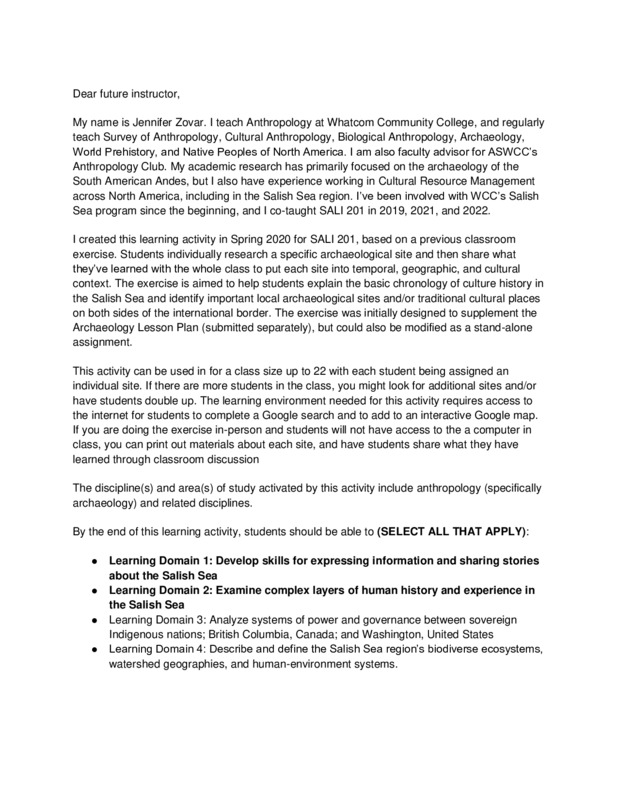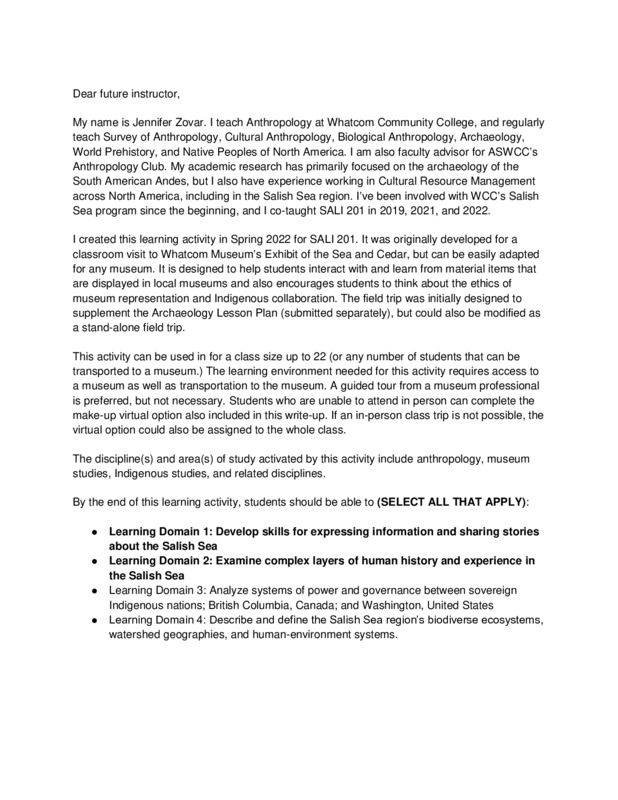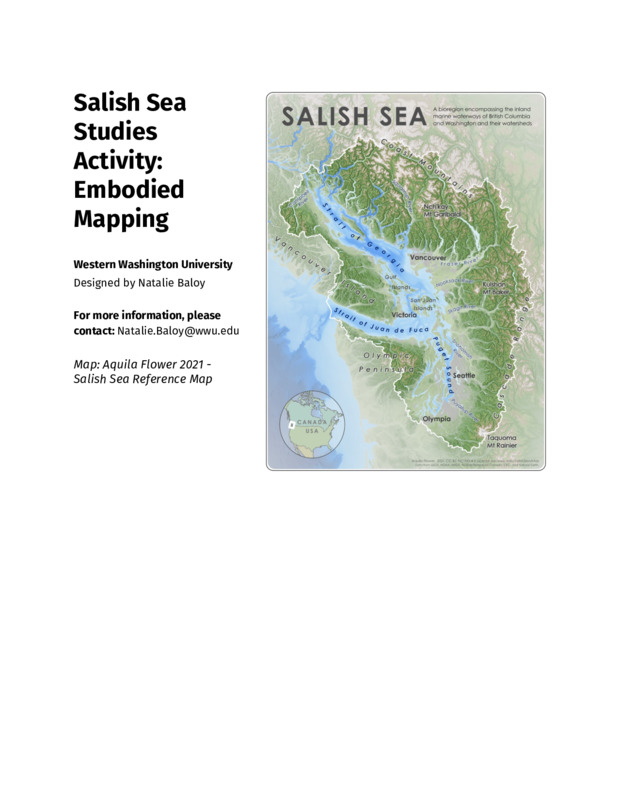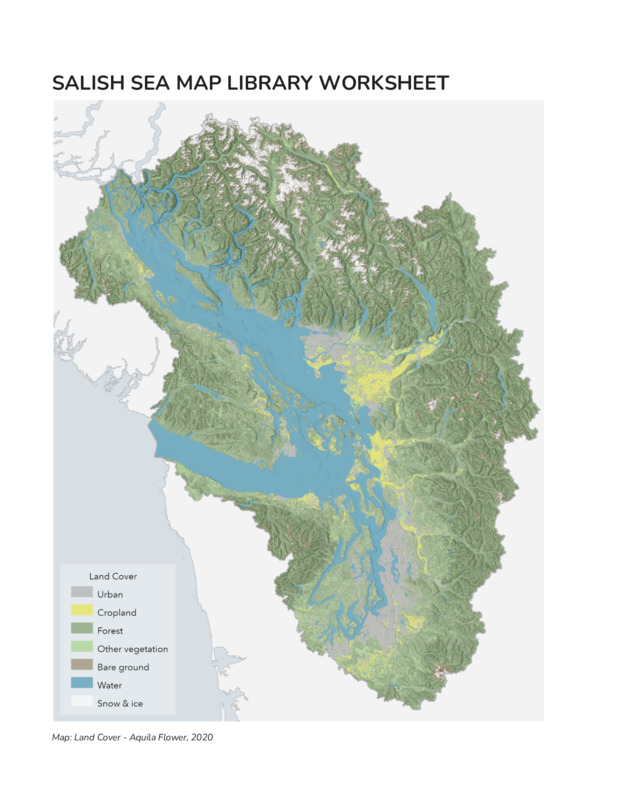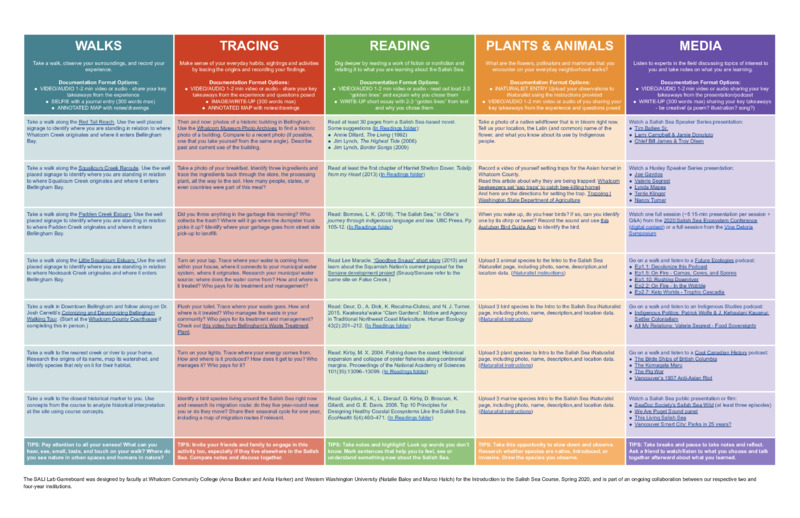Curriculum
The Latin origin of the word assess includes to "sit with" the student. This collection of assessments, some classified as performance tasks, some observations, some self-assessements and a variety of other types are meant to assist you in designing learning experiences and instruction with and for your students.
Check out this small collection of student research papers from the Salish Sea 201 class taught at WCC.
We welcome your contributions!
Please add assignments, activities, assessments with this form
Contribution Form-
Research Project OverviewThis course is about examining the Salish Sea through multiple disciplinary lenses in order to appreciate the complexity of this region. This project will allow you to dig deeper into one facet of this region pursuing an area of interest by asking a question to which there is no apparent known answering an effort to expand our larger collective knowledge about this region. This project is both a way to synthesize much of what you've been learning in this class through a multidisciplinary lens, but it also will help you practice other important life skills like effective communication and building collaboration skills.
-
Environmentalism: Muir, Pinchot, COP 27Read excerpts from John Muir, Gifford Pinchot and articles on the latest COP meetings. Discuss views, issues, feelings about them.
-
Letter to a LeaderStudents write a one-to-two-page letter to apply their knowledge and analysis to a contemporary issue and develop a position that reflects their research on the issue. Resources for locating a leader in a trans-border region with multiple jurisdictions on the Canadian and U.S. sides of the border is provided in the weeks leading up to this letter-writing assignment.
-
Archaeology Lesson PlanThe lesson introduces students to archaeology as a way of knowing the “deep history” of the Salish Sea and presents a brief review of the archaeology of the region. We also discuss the importance of this history to modern peoples today, including the necessity for archaeologists to collaborate with Indigenous communities.
-
Mapping the Archaeological Past of the Salish Sea (MAPSS)The exercise is aimed to help students explain the basic chronology of culture history in the Salish Sea and identify important local archaeological sites and/or traditional cultural places on both sides of the international border.
-
Museum VisitA field trip to a local museum allows students to interact with and learn from material items from the Salish Sea and also encourages students to think about the ethics of museum representation and Indigenous collaboration.
-
Fish Farming in the Salish Sea: A Discussion of Five PerspectivesThis activity is designed to provide students with differing perspectives on the future of salmon within the Salish Sea using interview data with different stakeholders in the region.
-
Species StoryA species story combines factual information about a species in the Salish Sea with storytelling skills. By using story, students move from a report- or research-mode to describe the natural world into a humanistic sharing of knowledge of a being in its place and context.
-
Embodied MappingStudents will deepen their knowledge of Salish Sea geography by creating a collective embodied map of assigned places.
-
Map Library VisitStudents will engage their Salish Sea learning from different disciplinary perspectives through engaging with maps at a series of stations at the Map Collection.
-
Salish Sea Reflection JournalA compendium of maps, resources, syllabus information, and reflection prompts, the Reflection Journal offers students and instructors a guide for sharing learning, questions, and ideas about Salish Sea Studies.
-
SALI Lab GameboardThis (virtual) lab component for the Introduction to the Salish Sea course supports students' engagement in independent experiential learning using walks, reading, podcasts, recorded lectures, and tracing local ecology.
Created:
Jul 15, 2024
Modified:
Aug 2, 2024
